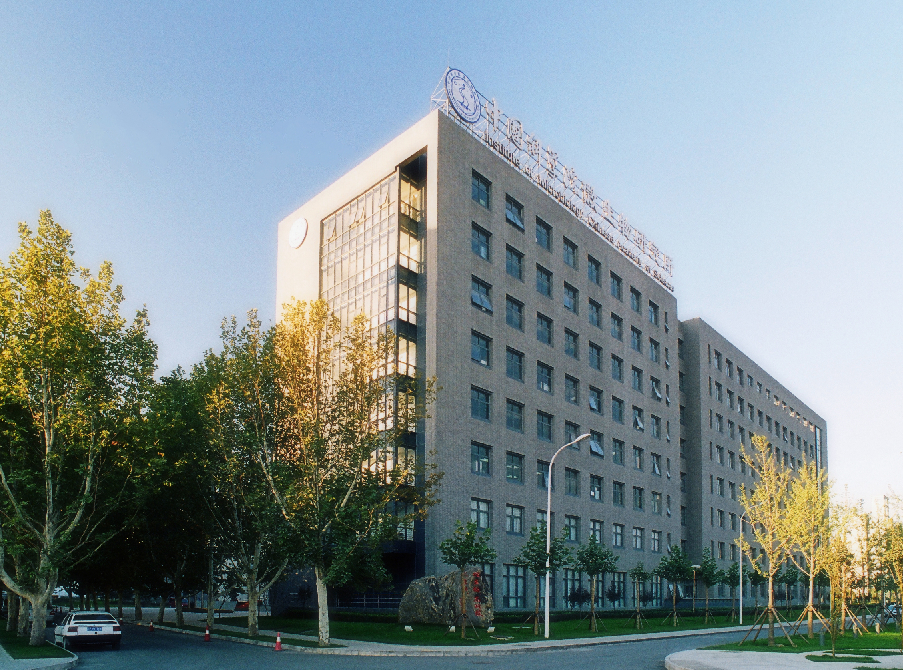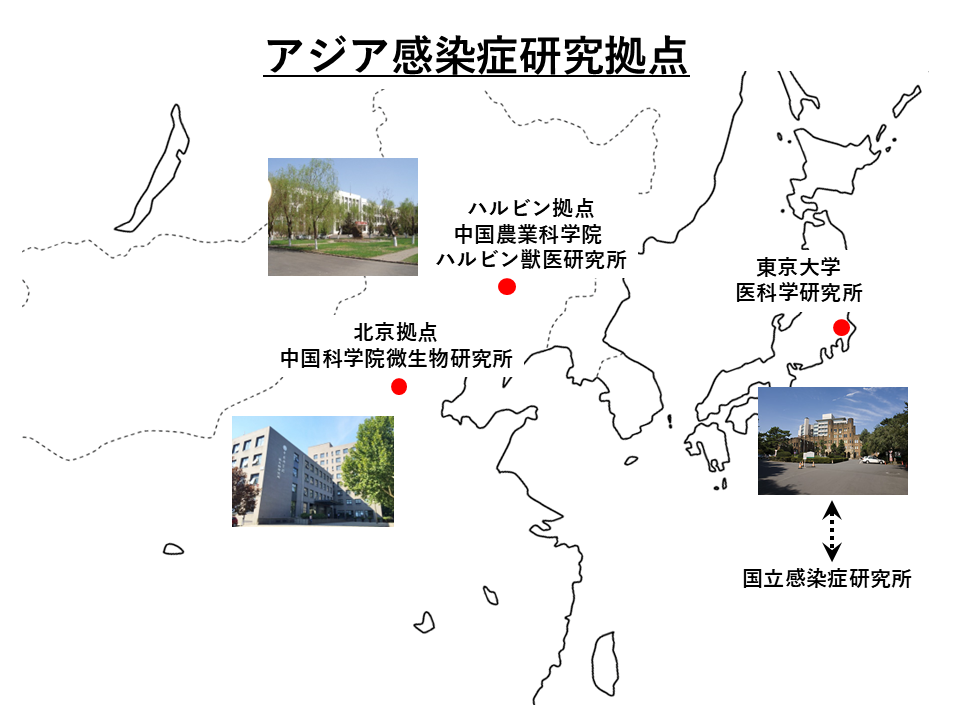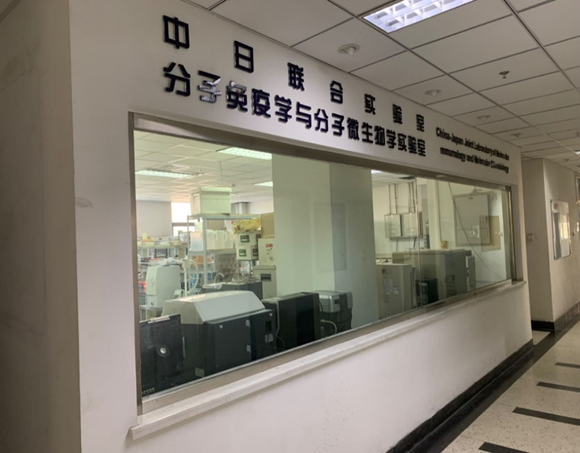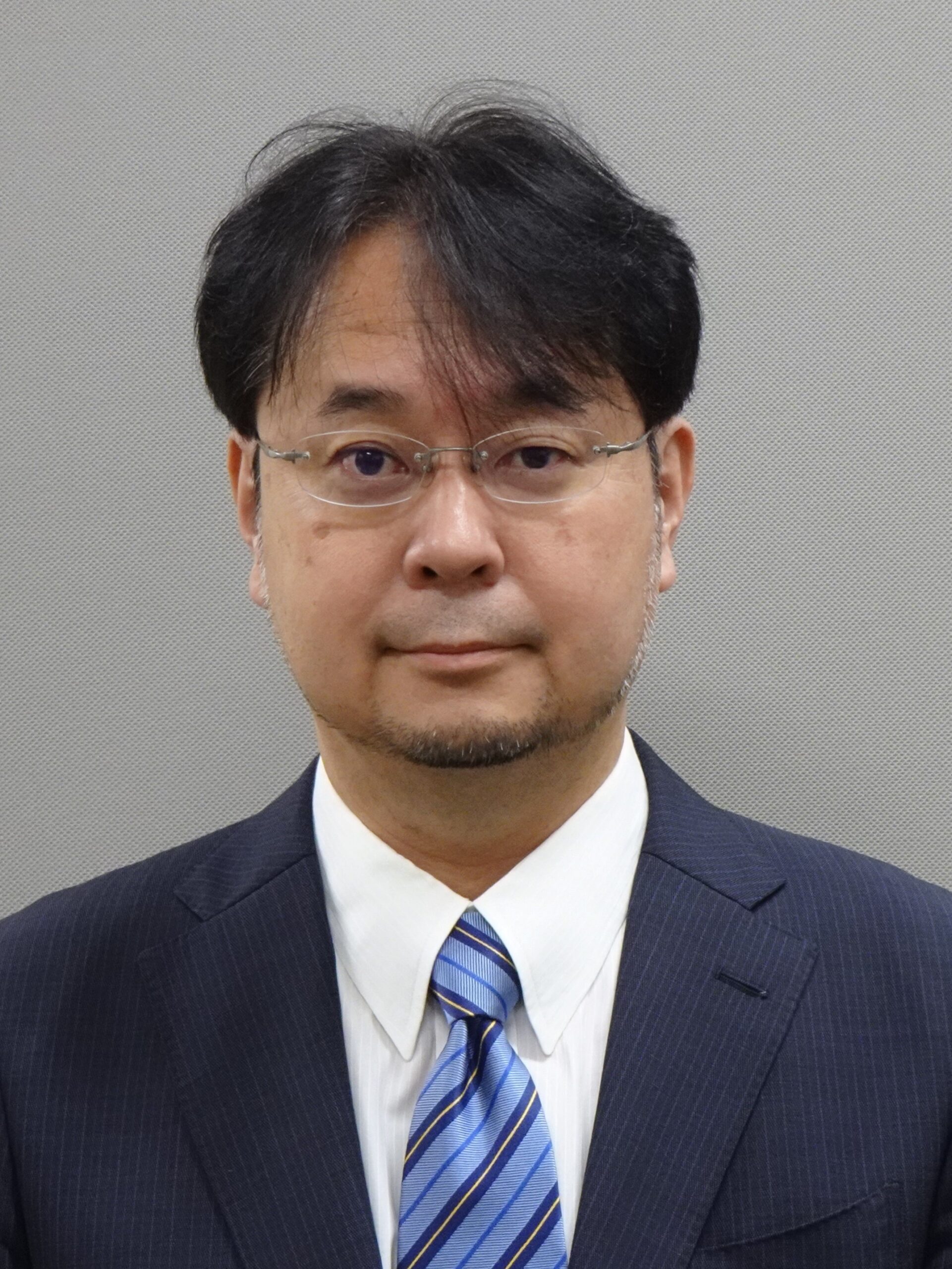Introduction of overseas research bases
The University of Tokyo China Center
Studies to Control Emerging, Re-emerging and Imported Infectious Diseases to Be Conducted in International Collaboration Sites in China

Since establishing its overseas research sites in China (the Beijing site and the Harbin site) in 2005, the Institute of Medical Science, the University of Tokyo, has built a system for collecting epidemiological information on influenza viruses and drug-resistant bacteria in China, and has succeeded in producing infection inhibitors, antibodies, and diagnostic kits for various enveloped viruses.
We are further developing these research results, focusing in particular on SARS-CoV-2, the causative virus of the novel coronavirus disease (COVID-19), which has been causing a global pandemic since the end of 2019, and are conducting basic research on the development of new treatments and diagnostic methods for enveloped viruses such as influenza viruses, flaviviruses, and herpes viruses that are currently circulating or are expected to circulate in the future and may cause imported infectious diseases. This research is conducted in collaboration with our collaboration sites in China, domestic institutions, the National Institute of Infectious Diseases, and overseas research sites at other universities. Furthermore, we aim to contribute to infectious disease control both in Japan and overseas by conducting epidemiological research on target infectious diseases in China and by collecting and disseminating the latest information on emerging and re-emerging infectious diseases.

Major papers and achievements
- Pathogenicity and transmissibility of bovine H5N1 influenza virus. Nature 633: 426–432, 2024.
- Cow's milk containing avian influenza A(H5N1) virus - heat inactivation and infectivity in mice. N Engl J Med 391(1): 87-90, 2024.
- Antiviral efficacy against and replicative fitness of an XBB.1.9.1 clinical isolate. iScience 26(11): 108147, 2023.
- In vitro and in vivo characterization of SARS-CoV-2 strains resistant to nirmatrelvir. Nat Commun 14(1): 3952, 2023.
- Metalloproteinase-dependent and TMPRSS2-independent cell surface entry pathway of SARS-CoV-2 requires the furin-cleavage site and the S2 domain of spike protein. mBio e0051922, 2022.
- The anticoagulant nafamostat potently inhibits SARS-CoV-2 S protein-mediated fusion in a cell fusion assay system and viral infection in vitro in a cell-type-dependent manner. Viruses 12(6): 629, 2020.

A message from the Project Director
For about 20 years, the Institute of Medical Science, the University of Tokyo, has been promoting Japan-China joint research on infectious diseases in collaboration with the Chinese Academy of Sciences in Beijing and the Harbin Veterinary Research Institute, Chinese Academy of Agricultural Sciences in Harbin. We will develop research that makes the most of the benefits of conducting joint research locally with leading research institutes in China, and aim for exit-oriented research that will translate the results of our research into practical applications. In the process, we hope to nurture young infectious disease researchers from both Japan and China who will lead the future, and contribute to Japan-China friendship through joint research activities. We appreciate your kind support.

Research Director or Center Director: Yasushi Kawaguchi
Position: Professor, The University of Tokyo
Degree: Doctor of Veterinary Medicine
(Department of Veterinary Medicine Sciences, Graduate School of Agriculture and Life Sciences, The University of Tokyo)
Biography
| 2023/04 - Present | Vice Dean, The Institute of Medical Science, The University of Tokyo (IMSUT) |
|---|---|
| 2022/10 - Present | Deputy Director, Pandemic Preparedness, Infection and Advanced Research (UTOPIA) Center, The University of Tokyo Institutes for Advanced Study |
| 2021/04 - Present | Director, International Research Center for Infectious Diseases, IMSUT |
| 2015/04 - Present | Professor and Director, Research Center for Asian Infectious Diseases, IMSUT (Concurrent Appointment) |
| 2012/01 - Present | Professor, Department of Infectious Disease Control, International Research Center for Infectious Diseases, IMSUT (Concurrent Appointment) |
| 2021/11 - Present | Professor, Division of Molecular Virology, Department of Microbiology and Immunology, IMSUT |
